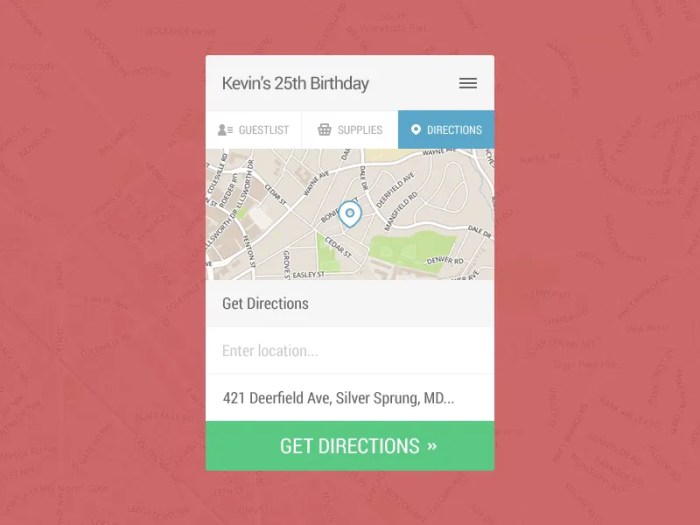Party Planning App Revolutionizing Celebrations
Party planning apps are rapidly transforming how we conceive and execute social gatherings, from intimate birthday parties to elaborate corporate events. These digital tools streamline the entire process, offering a comprehensive suite of features to simplify the often-overwhelming task of event organization. From meticulous guest list management to precise budget tracking, and vendor selection, these apps cater to every aspect of the party-planning journey.
The evolution of party planning apps reflects a broader trend towards digital solutions for complex tasks. This trend is fueled by the desire for efficiency, convenience, and comprehensive control over every detail. This analysis explores the core features, user experience, target audience, and future potential of this innovative technology, highlighting the key elements that differentiate them from traditional methods.
Introduction to Party Planning Apps
Party planning apps are revolutionizing the way individuals and organizations plan events. These platforms streamline the entire process, from initial ideation to final execution, offering a digital hub for managing every detail. They cater to a wide range of events, from intimate gatherings to large-scale corporate functions.
Purpose and Functionality
Party planning apps aim to simplify the often-complex task of event organization. Their functionality encompasses everything from guest list management and budget tracking to vendor selection and communication. They often integrate with other services to offer a comprehensive platform.
Types of Parties
These apps are applicable to a broad spectrum of events, including:
- Birthday Parties: Simplified guest management, personalized invitations, and tracking of RSVPs.
- Weddings: Centralized vendor management, detailed budget tracking, and streamlined communication with vendors and guests.
- Corporate Events: Facilitating team-based planning, comprehensive budget control, and efficient communication among attendees and organizers.
- Social Gatherings: Easy guest list creation, RSVP tracking, and coordination of activities.
Key Features

Party planning apps differ significantly from traditional methods due to their digital nature and integrated functionalities. Key features include:
- Centralized Platform: Bringing together all aspects of event planning in one location.
- Automated Tasks: Streamlining processes like RSVP tracking and vendor communication.
- Real-time Updates: Providing instant access to information for all participants.
- Enhanced Communication: Facilitating seamless communication between event organizers and participants.
Comparative Features
| Feature | Traditional Method | Party Planning App |
|---|---|---|
| Guest List Management | Spreadsheets, phone calls, email | Digital guest list, automated RSVP tracking, integrated invitation system |
| Budget Tracking | Spreadsheets, manual calculations | Automated budgeting tools, real-time expense tracking, vendor cost integration |
| Vendor Selection | Independent research, phone calls, emails | Vendor directories, online reviews, direct communication tools |
| Communication | Scattered channels (phone, email) | In-app messaging, group chats, notifications |
Features and Functionality
Core features of a successful party planning app are crucial for its user adoption. These features enhance the entire event planning experience.
Core Features
- Guest List Management: Essential for tracking RSVPs, managing guest details, and generating reports. This feature often includes functionalities for segmenting guest lists and creating personalized communication templates.
- Budget Tracking: Crucial for managing costs and ensuring the event stays within budget. The app should allow users to categorize expenses, track vendor costs, and compare various options.
- Vendor Selection: This feature should provide access to a directory of vendors, including reviews, portfolios, and contact information. This facilitates easy comparison and selection.
Feature Comparison
| Feature | App A (User Review Score: 4.5) | App B (User Review Score: 4.2) |
|---|---|---|
| Guest List Management | Excellent features for custom lists, personalized communications | Solid, but lacks the flexibility for unique list management |
| Budget Tracking | Detailed budgeting tools, real-time cost analysis | Basic budget tracking, limited reporting options |
| Vendor Selection | Large vendor directory with comprehensive filtering | Smaller directory, limited vendor options |
Improved Party Planning
These features streamline the party planning process, reduce administrative burden, and improve communication among attendees.
User Experience and Interface
A user-friendly interface is paramount for a successful party planning app. The design should prioritize intuitive navigation and clear presentation of information.
Importance of User-Friendliness
User-friendliness directly impacts user adoption and satisfaction. A seamless experience encourages continued use and positive reviews.
Ideal Design Elements
- Intuitive Navigation: Clear menus, easily accessible features, and simple step-by-step processes.
- Visual Appeal: Visually appealing design, including high-quality graphics and intuitive layouts.
- Clear Information Architecture: Logical organization of features and functionalities.
UI/UX Design Concepts
| Concept | Description |
|---|---|
| Minimalist Design | Clean, uncluttered interface with focus on essential elements. |
| Modern Design | Contemporary aesthetics, modern typography, and intuitive navigation. |
| Customizable Design | Allows users to personalize the app’s appearance to match their event’s theme. |




